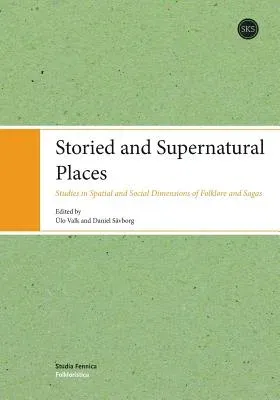Ülo Valk
(Author)Storied and Supernatural Places: Studies in Spatial and Social Dimensions of Folklore and SagasPaperback, 26 April 2018

Qty
1
Turbo
Ships in 2 - 3 days
In Stock
Free Delivery
Cash on Delivery
15 Days
Free Returns
Secure Checkout
Print Length
286 pages
Language
English
Publisher
Suomalaisen Kirjallisuuden Seura
Date Published
26 Apr 2018
ISBN-10
9522229172
ISBN-13
9789522229175
Description
Product Details
Authors:
Book Format:
Paperback
Country of Origin:
US
Date Published:
26 April 2018
Dimensions:
25.4 x
17.78 x
1.52 cm
ISBN-10:
9522229172
ISBN-13:
9789522229175
Language:
English
Pages:
286
Publisher:
Weight:
498.95 gm

